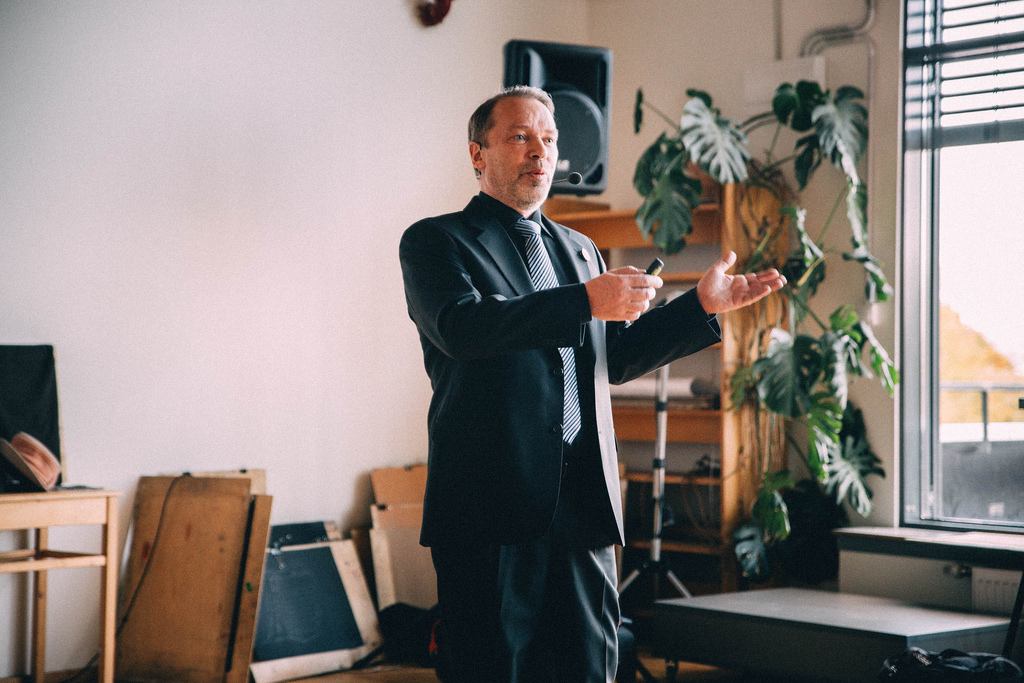World Cultural Council’s education award to Aalto Design Factory’s Kalevi Ekman

The founder of Aalto University's Design Factory, Kalevi Ekman, is known for his visionary and inspiring ideas. His pioneering work has been now awarded with Jose Vasconcelos World Award of Education.
The founder of Aalto Design Factory, Kalevi Ekman, is known for his visionary and inspiring ideas. His pioneering work has been now awarded with Jose Vasconcelos World Award of Education.
World Cultural Council’s Jose Vasconcelos World Award of Education 2016 has been awarded to professor Kalevi Ekman, the founder of Aalto University’s Design Factory concept. The prize recognizes Ekman’s international and productive humanistic approach to education and his visionary and inspiring ideas on the Design Factory Concept as outstanding educational methodology.
“I’m definitely happy about this! For many pioneers in Aalto and Design Factory this is a fine demonstration of doing the right thing,” Ekman cheers.
The José Vasconcelos World Award of Education is granted by the World Cultural Council as a recognition to renowned educators, to experts in the field of teaching, and to legislators of education policies who have significant influence in enriching the culture of mankind. This award has been presented biennially since 1988.

Mixing people
Aalto Design Factory was born from a research project focused on creating an ideal physical and mental working environment for product developers and researchers. Today ADF is one of the spearhead projects and one of the first physical manifestations of Aalto University encouraging and enabling fruitful interaction between students, researchers, and professional practitioners.
The original idea for the Design Factory was born in an Aalto University workshop in summer 2007, but the previous collaboration projects of the three schools also helped its establishment.
As regards fields of technology, the Design Factory is connected, among other things, to electrical engineering and electronics, automation, architecture, mechanical engineering, materials science and engineering, computer science, and industrial engineering and management. The School of Arts, Design and Architecture is represented by the fields of textile art and clothing design, industrial design and environmental art. The School of Business is linked to the Factory through marketing, international business and innovations.
Ekman strongly believes that any unused competitive potential can be explored through cooperation between various fields. At the University of Helsinki, these fields include for example agriculture, cognitive science, medicine and law.
Since information can be made available in a flash, the core of education must be reformed.
“It is imporant to teach practices that help one stay focused while working, to teach how to learn,” Ekman concludes.
Ekman has noticed that an interdisciplinary approach is beneficial, especially for engineering students, one of whom he once was.
“I can honestly say that we have been influenced most of all by the Aalto Arts cooperation. And I believe it’s the same the other way around! Mixing people from different fields has a truly refining effect. This is what we must focus on in the future, too.”
These skills, in particular, have helped Ekman during his career.
“In twenty years, thousands of students has passed through this rather energy-intensive and positive treadmill. I must learn new things all the time in order to keep up.”
Aalto University is a multidisciplinary community where science and art meet technology and business in six schools with nearly 20 000 students and 4 500 employees.
